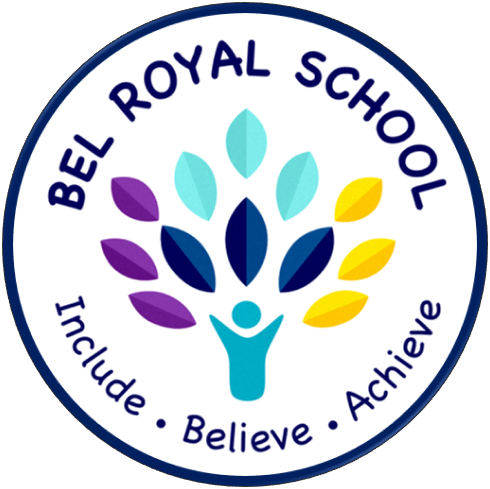
Bel Royal Primary School
Oracy
Conversation is a meeting of minds with different memories and habits. When minds meet, they don't just exchange facts: they transform them, reshape them, draw different implications from them, engage in new trains of thought. Conversation doesn't just reshuffle the cards: it creates new cards.
Theodore Zeldin
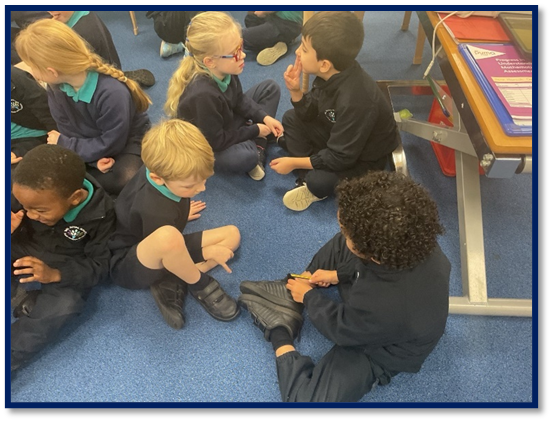
Intent
Oracy is a key element to our whole curriculum at Bel Royal School, where children learn to talk and learn through talk to enable our children to develop the confidence and skill to communicate effectively no matter the audience.
We believe every voice in our school community should be heard and valued and provided the opportunity to thrive. This will be supported by a culture which celebrates the languages, accents and dialects of each unique child and fosters empathy and respect.
Through our curriculum, our aim is to develop skilled use of language and vocabulary to explore and explain their learning, think critically, debate, perform and express themselves in a range of context. Being able to articulate thinking, actively listen to others, collaborate and develop an understanding of the world around us through discussion.
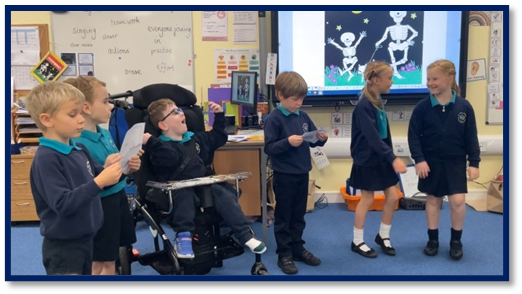
Implementation
Bel Royal follows the Oracy Framework to understand the physical, linguistic, cognitive and social and emotional skills that enable successful discussion, inspiring speech and effective communication.
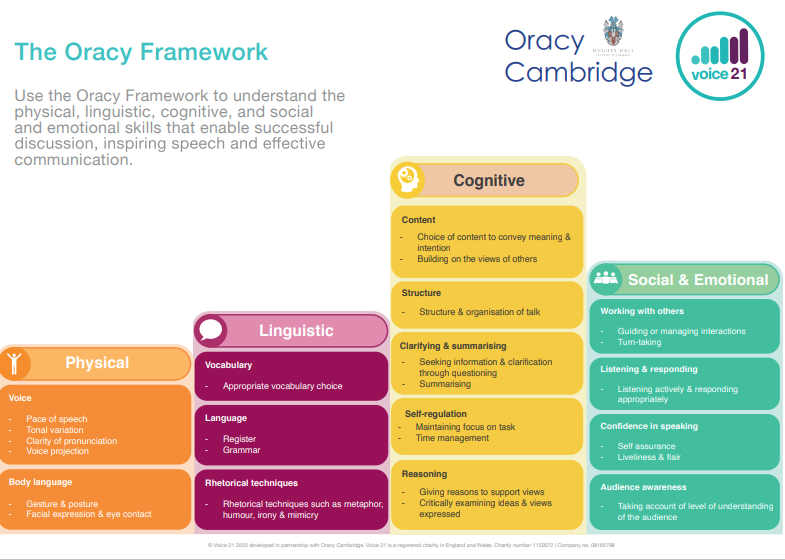
We are a Voice 21 Oracy school which invests learning time into creating talk-rich classrooms, teaching explicit lessons and through the planning and teaching of oracy throughout the whole curriculum.
We use a variety of Voice21 structures to support different types of talk. Children are immersed in talk-rich environments. Each year group develops their own discussion guidelines that are displayed in classrooms and that children are guided to use to reflect upon their own and their peer’s oracy skills.
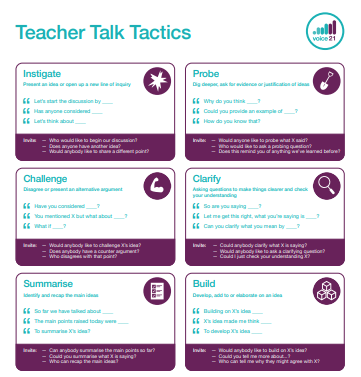
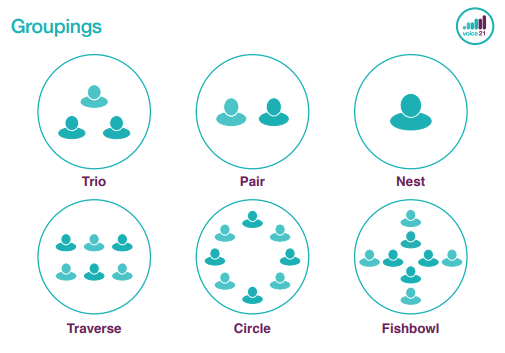
Over time, children are introduced to a progressive range of talk - tactics and sentence stems to support their talk and that are adapted to the needs of the learners. Learning opportunities are planned with consideration of grouping to encourage a range of talk opportunities. Explicit instruction of subject specific vocabulary is planned and taught across the curriculum.
Opportunities for performance and debate are threaded throughout the curriculum for each year group and planned for through our progression document. Enrichment opportunities for pupils such as whole school play, Eisteddfod, States Chamber and talent shows are planned for each year.
Impact
Our children are confident speakers who embrace opportunities to articulate their ideas and opinions, whether in the classroom, in assembly, in conversation with their peers or in front of parents. It will be heard when listening to them recite a poem, watching them take turns in a group discussion, felt through the profound questions they ask and the attentiveness with which they listen to one another.
Throughout Years 1 to 6, pupils should be taught to:
- Listen and respond appropriately to adults and their peers
- Ask relevant questions to extend their understanding and knowledge
- Use relevant strategies to build their vocabulary
- Articulate and justify answers, arguments and opinions
- Give well-structured descriptions, explanations and narratives for different purposes, including for expressing feelings
- Maintain attention and participate actively in collaborative conversations, staying on topic and initiating and responding to comments
- Use spoken language to develop understanding through speculating, hypothesising, imagining and exploring ideas
- Speak audibly and fluently with an increasing command of Standard English
- Participate in discussions, presentations, performances, role play, improvisations and debates
- Gain, maintain and monitor the interest of the listener(s)
- Consider and evaluate different viewpoints, attending to and building on the contributions of others.
- Select and use appropriate registers for effective communication.